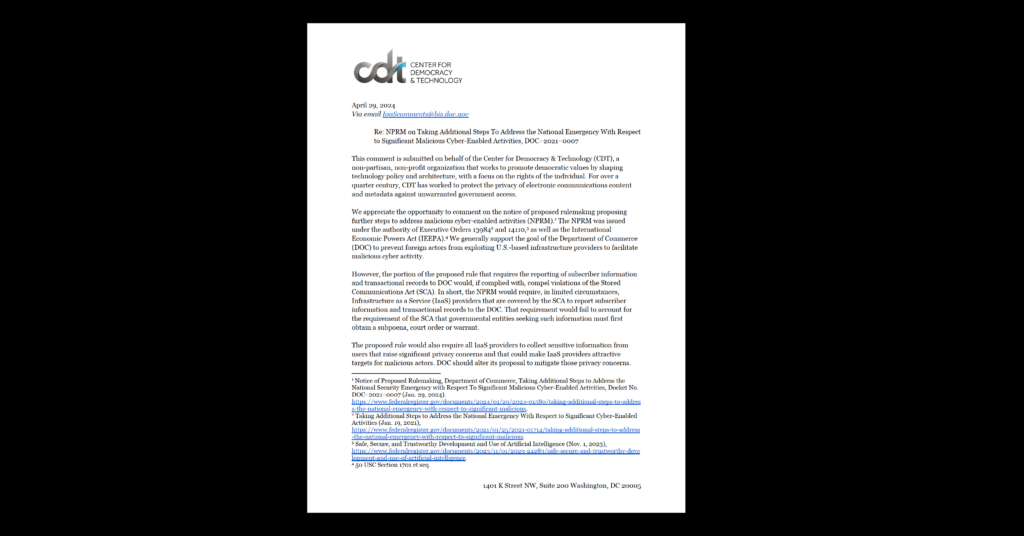Prominent Republicans Endorse ECPA Reform
The right to be protected against unreasonable government intrusions is enshrined in the Constitution’s Fourth Amendment, but Congress needs to act because the courts have lagged in extending privacy protections to new technology. And Congress can adopt reasonable and necessary limits on government power without hindering legitimate law enforcement investigations. Those were key messages of prominent Republicans at a Capitol Hill briefing hosted by The Constitution Project (see video below) last month.
The briefing was called to mark the 25th anniversary of the Electronic Communications Privacy Act (ECPA), the federal statute setting standards for government surveillance of our digital communications. Communications technology has changed dramatically since 1986, and ECPA no longer provides adequate privacy protection. For example, under the statute, the government claims it does not need a judicial warrant to read our stored email or track our movements using our mobile phones.
Given the importance of protecting communications and data stored in the cloud, leading conservative, libertarian and free market advocates have joined in a “strange bedfellows” coalition with liberal groups and major corporations to call on Congress to update the quarter-century-old ECPA. Senator Patrick Leahy (D-VT), Chairman of the Judiciary Committee and one of the original authors of ECPA, himself agrees that ECPA is outdated and has introduced a bill, the ECPA Amendments Act (S.1011), to require a warrant for intrusive surveillance.
Under the Leahy bill, the government would be required to obtain a warrant before accessing the content of our private digital communications. It would also be required to get a warrant before tracking someone’s location in real-time.
At the Hill briefing, Republicans with impeccable law enforcement and national security credentials pointed out the warrant requirement would not unduly hamper law enforcement. William H. Taft, IV, Deputy Secretary of Defense during the Reagan Administration, stated that the bill would not significantly hamper the efforts of law enforcement to operate and protect Americans, noting that it contains exceptions for emergency situations in which law enforcement could act without a warrant.
Bob Barr, a former member of Congress (R-GA) and U.S. Attorney for the Northern District of Georgia, also praised the Leahy legislation, noting that it in many ways resembled a bill that had been favorably reported by the House Judiciary Committee when it was controlled by Republicans. He stated that the warrant requirement leads to more efficiency by ensuring law enforcement officials organize their cases in the beginning of the process instead of in the lead up to trial. “Sooner or later, they are going to have to do this work,” said Barr.
Taft and Barr were joined on the panel by former U.S. District Court judge James Robertson, who also emphasized that supporting a warrant requirement is “not soft on crime.” Robertson pointed out that law enforcement stands to benefit from the certainty the bill offers: “The clearer the law is, the better it is for law enforcement . . . and the more insurance they have that when they make an arrest or investigate a situation, they’re not going to be reversed by [a] court.”
Barr also noted that privacy is an issue that transcends traditional party lines. He was particularly concerned that the average citizen did not realize that the government could search his or her email without a warrant, stressing that citizens’ expectations of privacy are not reflected in the current law.
“This is not some… liberal scheme that somebody has come up with to tie law enforcement’s hands,” said Barr. “It is common sense, [and it is] Constitutional.”
Video from The Constitution Project


